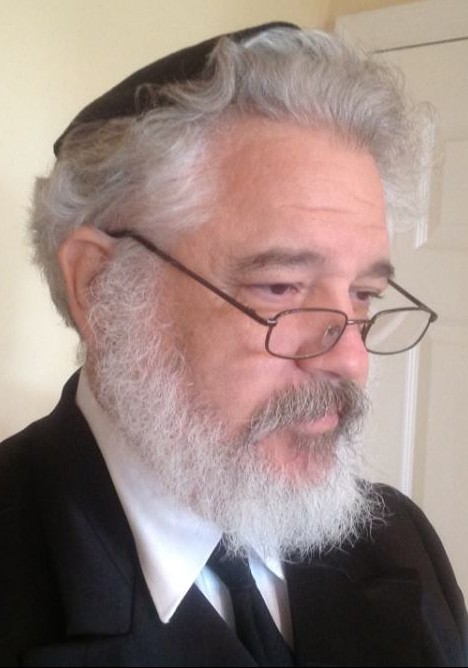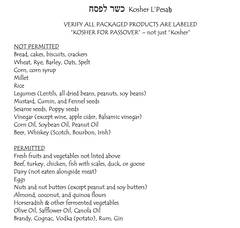Rabbinic? I don't think so!
| Author | |
| Date Added |
R. Steve Bernstein
I have seen a disturbing trend in Messianic Judaism. In evaluating things Jewish, the judgment is made, is this in Torah, or is this rabbinic? The question itself denotes a profound lack of understanding of history. Is there another alternative besides Torah or rabbinic? The answer is, of course.
There was about a 1000 year time period between the receiving of Torah at Sinai and the coming of our Master Yeshua. A huge amount of Jewish history occurred during this time. All of the Prophets, the Kings, the northern and southern kingdoms, the exile, the return, happened during this time period. Yet there were no rabbis.
The rabbinic period (arguably) began at Yavneh, some 50 years after the execution and resurrection of our Messiah. Consequently, we have a huge hunk of history that was neither Torah nor rabbinic. Very important things happened during this time, and very important decisions are made within the Jewish community. Many of these decisions were common practice and accepted within the Jewish community in Yeshua’s time.
With the destruction of the Temple in 586 B.C.E, a new era in Jewish history began. Judaism was no longer based, could no longer be based in temple worship, as the temple had been destroyed. Our people were carried off into exile, 90% to Babylon, and 10% to Egypt. The leadership of the Jewish community in Babylon got together to determine what had to be done for the Jewish people to survive. This group of leaders, 120 of them, was called the Anshei Knesset HaGdola, or, the men of the great assembly. Counted among these leaders were, Zechariah, Haggai, Daniel, Ezekiel, Mordechai, Ezra, Nechemiah,and many other great leaders of the people. The Anshei Knesset HaGdola were not rabbis, they were in a category all to themselves. The Anshei Knesset HaGdola continued its leadership with the return to the land; until the time of Alexander the great. The last of the Anshei Knesset HaGdola was Shimon HaTzadik. They were responsible for the survival, and eventually the flourishing of the Jewish people.
The Anshei Knesset HaGdola made many decisions that allowed the Jewish people to flourish. One decision that we know came from the Anshei Knesset HaGdola, was the establishment of the Synagogue. Synagogue service was established, the order of service was set, and became mainstream Jewish practice during the leadership of the Anshei Knesset HaGdola. Various prayers were added, changed, deleted, but the order of service that we have in today’s Synagogue is essentially the same as the order of service established by the Anshei Knesset HaGdola. Another of the basic practices that were established during the tenure of the Anshei Knesset was the problem of the Jewish community being in the galut, in the diaspora, for the 1st time. Hashem give us the Torah at Sinai, in it, Hashem designated Moadim. Many of the Moadim called for no work and festivities during a one day period. However, being in the exile, the question came up, does this mean one day in the Land, or does this mean one day where the children of Israel reside? How can all the children of Israel celebrate a Moed together and additionally, celebrate the one day at the same time as the land of Israel? To solve this dilemma, the Anshei Knesset HaGdola instituted 2 day celebrations of the Moadim in the diaspora. The exception to this is, of course Yom Kippur, which the Anshei Knesset HaGdola determined would be too much of a hardship to do for 2 days. This decision was made, and this practice was put into place, some 500 years before our Messiah. In Yeshua’s time, this was common practice and was part of Judaism in Synagogues everywhere outside of the land. In their travels the talmidim, no doubt, experienced, and participated in this practice within Judaism. Both of these institutions, the Synagogue, and 2 day Moed, were not in Torah, but neither were they rabbinic.
It is important to note that Yeshua’s condemnations of theology within Judaism in practice within Judaism were very limited. The theology of the Sadducees, was roundly rejected. And, practices of hypocrisy were pointed out, and vicerated. But neither the theology nor the practices of Pharisaic Judaism were ever spoken against. Hypocritical Pharisees were spoken against, but not Pharisaic practice. In short, we should be very reticent to reject any of the practices given us by the Anshei Knesset HaGdola.
Thu, April 18 2024
10 Nisan 5784
This week's Torah portion is Parshat Metzora
Candle Lighting
| Friday, Apr 19, 7:36pm |
Havdalah
| Motzei Shabbat, Apr 20, 8:44pm |
SERVICES & STUDIES
SHABBAT Service - 11am
Adult Education Class - Shabbat 9:30am
Schul Events
Shacharit Pesach Service
Tuesday, April 23 @11am
Schul Passover Seder
Tuesday, April 23 @7:45pm
Shacharit Pesach Service
Monday, April 29 @11am
Community Events

Rabbi Doctor Steven Bernstein
MEMBERS & GUESTS
We are so very grateful to Villas Wesleyan Church for opening their doors to us so we can continue having services while looking for our own building.
We need to be excellent guests and this takes every one of us to accomplish, so here are some gentle reminders:
We need helpers for set up (30 minutes prior to each service)
We will have kiddish lunch / nosh as usual – watch for posted signs for where to set food
Bring your own coffee
No food allowed in the sanctuary
No drinks (except water) allowed in the sanctuary
Nursery facilities are available plus there’s a changing table in the lady’s restroom – whoever uses them is responsible for pick up, disinfecting, and removing trash
Everyone needs to clean up after themselves and their children
We need helpers for break down (move furniture back into position, wipe down surfaces, take out trash)
MANY HANDS MAKE LIGHT WORK! THANK YOU
Shul Information
(239) 246-3868


